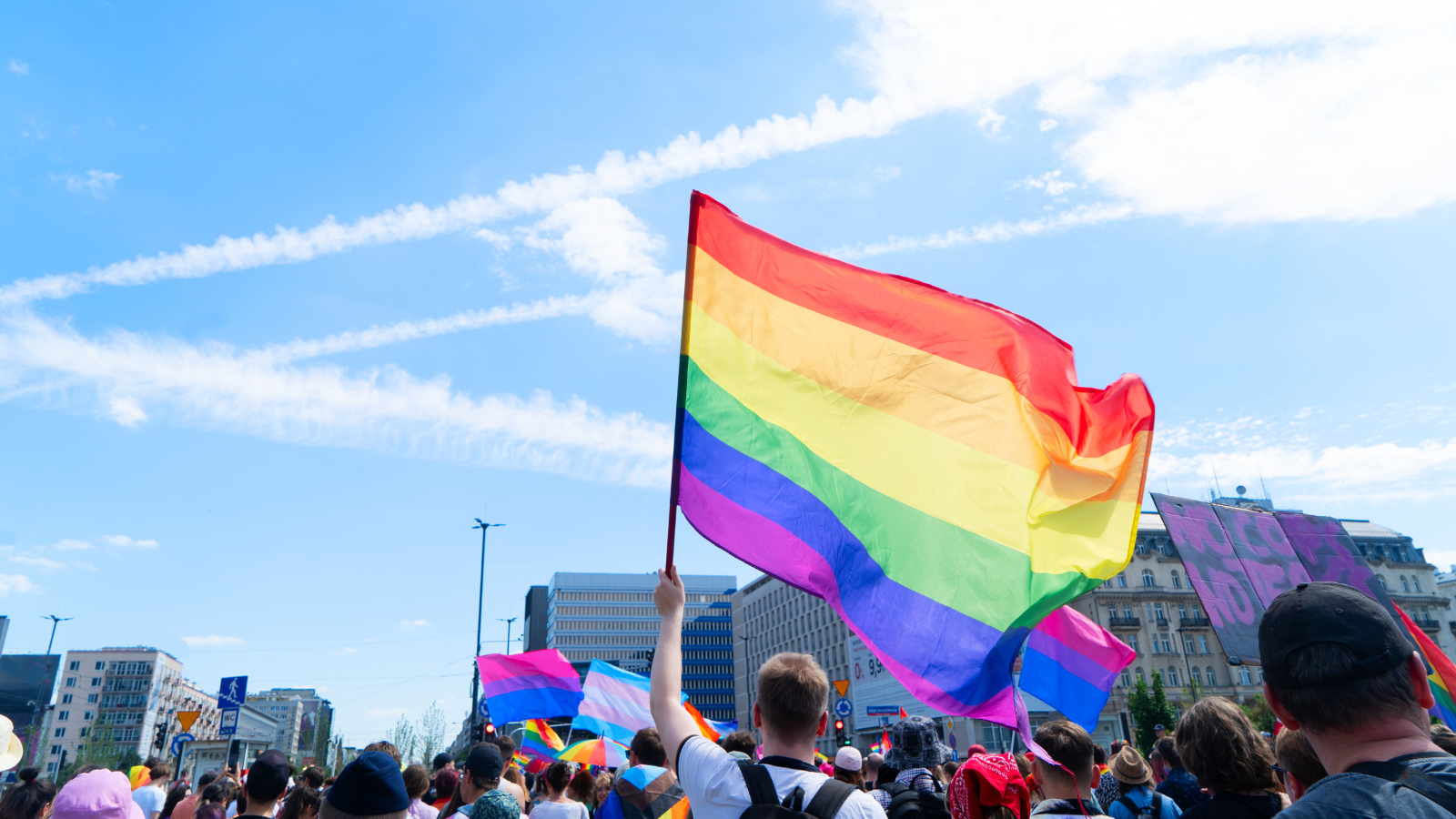Our News
Pinkwashing & Climate Injustice

You may well already be aware of the term ‘greenwashing’; a marketing strategy wherein a company deliberately gives a false impression that they, or their product or service, are environmentally friendly, or ‘green’. Greenwashing can be incredibly deceptive and can result in a person buying or doing something with the mistaken belief that they are undertaking a positive behaviour that benefits the environment, whereas actually, it may be doing exactly the opposite…
Greenwashing is something The Carbon Literacy Project actively works to prevent. If you’d like to read about our organisational stance on greenwashing, you can find out more here.
That said, greenwashing is just one of a family of corporate techniques used to ‘wash over’ questionable or unethical practices. We have seen ‘socialwashing’, ‘bluewashing’ and ‘pinkwashing’ – the latter of which is of particular relevance during this Pride Month.
Pinkwashing is the strategy of promoting something as LGBTQIA+ friendly, reaping the benefits of appearing to be supportive and inclusive of the queer community, without active or meaningful support to follow through on those claims, or, in reality undertaking behaviour or activity that actively damages the LGBTQIA+ community.
So, how does this relate to the environment?
With the growing visibility of Pride and LGBTQIA+ History Month each year, pinkwashing techniques are being adopted by an increasing number of companies who are jumping at the opportunity to superficially show their support. This includes those who notoriously have a harmful impact on our planet, even though, as we now know, queer individuals are disproportionately affected by climate change.
Fossil fuel giant BP has tried to acquire a pro LGBTQIA+ image in recent years. From Pride events, to advertisements, sponsorships, and promoting themselves as a strong LGBTQIA+ employer, BP has talked the talk. Meanwhile, however, they have put queer lives at risk in Egypt, where signing new gas deals and contributing to military regimes has threatened trans and queer people. Additionally, with hefty donations to politicians and US congress, BP has enabled homophobic politicians to become elected that have gone on to use their position to attack LGBTQIA+ rights.
Following suit, Barclays has come under fire for advertising themselves as LGBTQIA+ friendly, with the pride colours being adopted into their branding and logos. Barclays, however, continue to fund climate disaster, holding the title of the largest fossil fuel financer in Europe. In the last 3 years alone, Barclays has invested a frightening $85 billion into fossil fuel projects. If you’d like to support the campaign to Divest Barclays, you can do so here.
Fast fashion retailer Primark launched pride clothing lines in stores across the world and annually change its logo to include the pride flag colours in the month of June. But, fast fashion’s impact on the planet is ever-worsening and accounts for approximately 10% of global emissions. Clothes are produced at break-neck speeds with cheap, poorly constructed, synthetic fabrics such as polyester and nylon, in unethical factories where garment workers are exploited and have their human rights abused – all in the name of profit. Shockingly, these pride-friendly lines are being produced in countries where LGBTQIA+ people often have to hide their identity in fear of being disrespected, discriminated against, or punished by law.
So what can we do?
As a society, we need to encourage brands to step away from advertising themselves as LGBTQIA+ friendly merely as a PR opportunity, and holding them to account when they do, especially during Pride Month, a once-a-year occurrence. Instead, why not use occasions like Pride Month as an opportunity to share what your organisation is committed to doing on LGBTQIA+ all year round, every day of the year.
As society progresses and we move forwards into a more diverse and caring society, it is necessary that diversity and inclusion become integral elements of all organisations, so people of all genders, gender identities, gender expressions and sexual orientations can be wholly accepted and represented. And when an organisation is genuine and sincere in its inclusion practices, and already actively inclusive within its workforce or customer base, there is less and less need for it to assert or promote this, and therefore less risk of pinkwashing taking place.
We need to make space for a better today and an even better tomorrow, where organisations do better for their current and future people. And in doing so, we can live in a safer, happier, more peaceful and more equitable world.
We’re delighted that many members of the LQBTQIA+ community play such an active role within our team. But at the same time, we continue to work to further increase our team’s diversity and inclusivity. If you are an LGBTQIA+ individual, or from another group within society that needs stronger representation within the environmental sector, and are interested in working with our team, please keep an eye out for job openings, or apply for a volunteer role. If you feel you have something to add to our organisation, we would love to have your insight and to hear your voice.
Queer Environmental Activists and Organisations
Listed below are some environmental activists, creators, charities and platforms that you can check out and follow. Each holds different resources, experiences and perspectives that we can engage with. It is vital to listen to, and amplify, the voices of change-makers in this sphere.
- Queer Brown Vegan
- Jamie Margolan
- Pattiegonia
- Out4Sustainability
- GiveOut
- AKT
- True Colours United
- Queer EcoJustice Project
- Queers X Climate
- Our Climate Voices
If you are from the LGBTQIA+ community and would like to share a story in relation to climate justice, please contact us at [email protected] and we would be honoured to help amplify your voice, and share your experiences and thoughts.